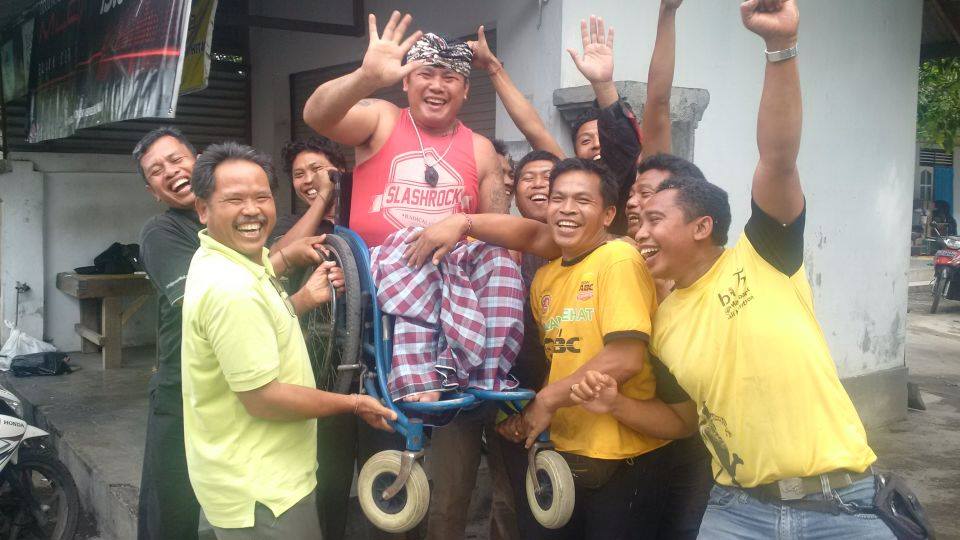Our Director on how PUSPADI Bali has Evolved and the Vital Work that Still Needs to be Done

In 1986, PUSPADI Bali’s Director I Nengah Latra had an accident by a kerosene blast, which left him horrifically burnt.
Two years later, he went to Yogyakarta to have rehabilitation and then continued to work there for more than 11 years.
In 1999, he came back to Bali to set up a new foundation called PUSPADI Bali, which provides opportunity for people with a disability by improving their learning and professional development skills, as well as giving them dignity.
Currently, it has rehabilitated more than 4,000 persons with a disability.
They come mostly from Bali, Lombok and Eastern Indonesia.
The organisation has four programs, including rehabilitation, education, empowerment and advocacy. The unique part of PUSPADI Bali is 75 per cent of staff are physically disabled.
Since you’ve started the organisation in 1999, have you seen any positive shifts in attitude towards people with a disability? Well with the numbers of people with a disability, we have rehabilitated more than 4,000, so now they’ve become the success stories in the villages so they can talk about the stigma…they feel now that the person with a disability has similar or same level especially for the family, community and the government now get more attention for person with a disability.
What changes need to happen (in Bali and Indonesia) to improve the quality of life for people with a disability? They need more opportunity to explore their potential, like also the facilities of the school and also accessibility in the environment. The law and the government also must be matching with the needs of person with a disability.
PUSPADI Bali is unique because it has a model where it is providing rehabilitation, empowerment, training and education – do you see that model working? Yes, because we cover all of the programs as well as with the advocacy – it means to make the complete work, we can’t just give them the rehabilitation, we also need the chance or opportunity to work in the formal sector. They also need to sit together when we are making plan or decision together.
You and other disability support organisations have been advocating for a disability rights law to be enforced in Bali – how is that going? Bali is very lucky now because PUSPADI Bali is leading and creating the local law now, that we already sign it and now we make regulation to work with the NGOs and other disability support organisation to make sure what they’ve written down in the local law is actually happening for persons with a disability.
What’s your vision, for people with a disability in Bali and Eastern Indonesia? Every person with a disability have equal rights and they can also live like a normal person and also they have the same opportunity to go with the education, with their work and at their home and also with the living and…they’re also a part of the underdeveloped countries.
Sponsorships and donations go a long way at PUSPADI Bali; explain. Sponsorships and donations help us to continue our support especially for person with a disability who are living in the rural area.
So, the more support we get and the more donations we get, the more people we can achieve to get rehabilitation.
I’d suggest everyone who has rehabilitation for PUSPADI Bali to decide to share this information with other people with a disability, when they are going anywhere in the world so you can explain what
PUSPADI Bali does – it’s a small thing that you can do but it’s a very big impact with the other people with disability especially who have not yet received rehabilitation from PUSPADI Bali or from other associations.
Usually it’s a good example to explain what happened before you received rehabilitation at PUSPADI Bali or before you received any rehabilitation from us, from what you feel, what you receive and get from us, you can explain to other people with a disability to open the door, to open the window, they can open their eyes and open their mind so they can join us and more people join with us, so that means more people get opportunity to receive rehabilitation.
Watch the full interview on our YouTube channel: http://bit.ly/2iaUd7H.